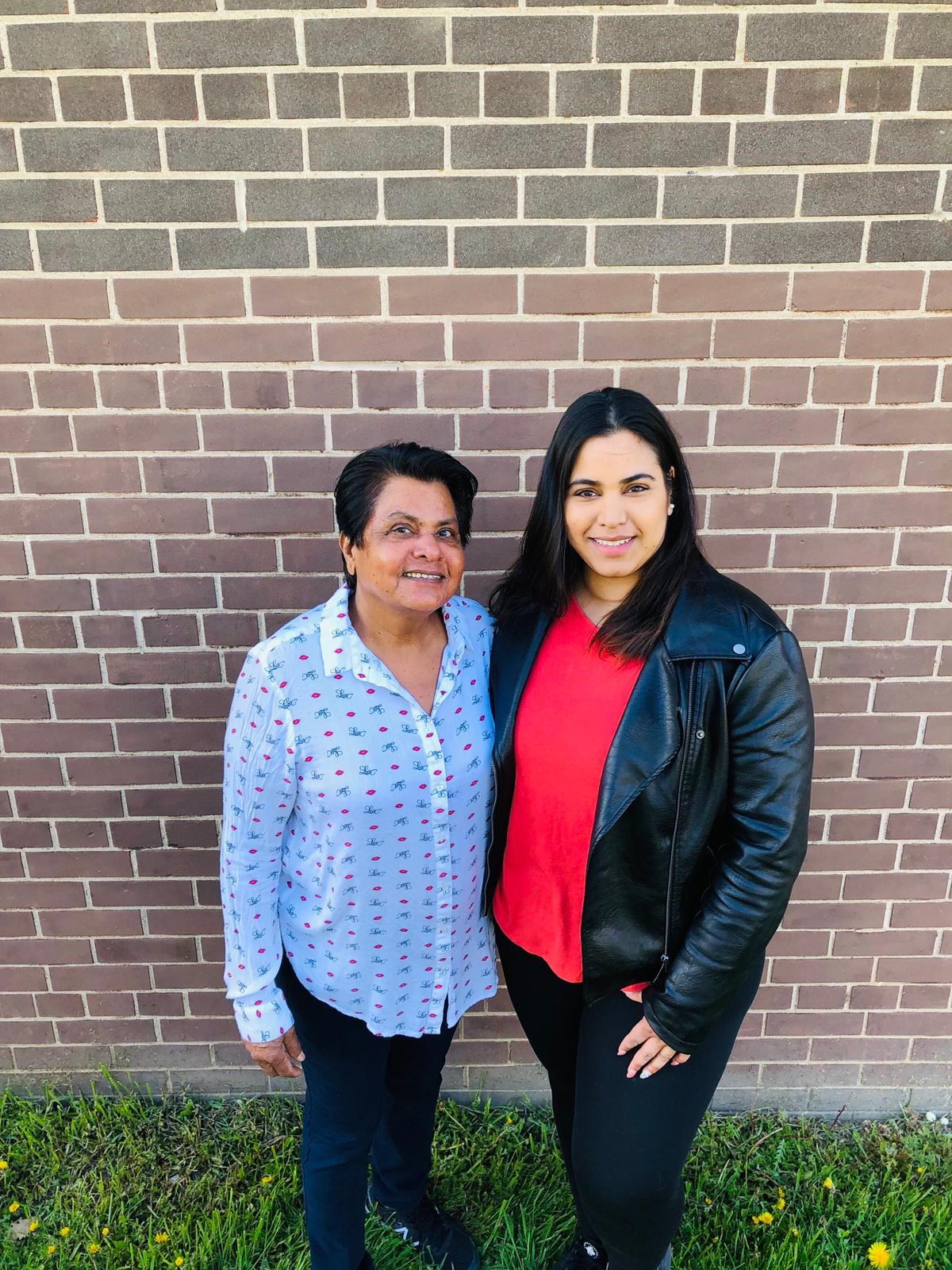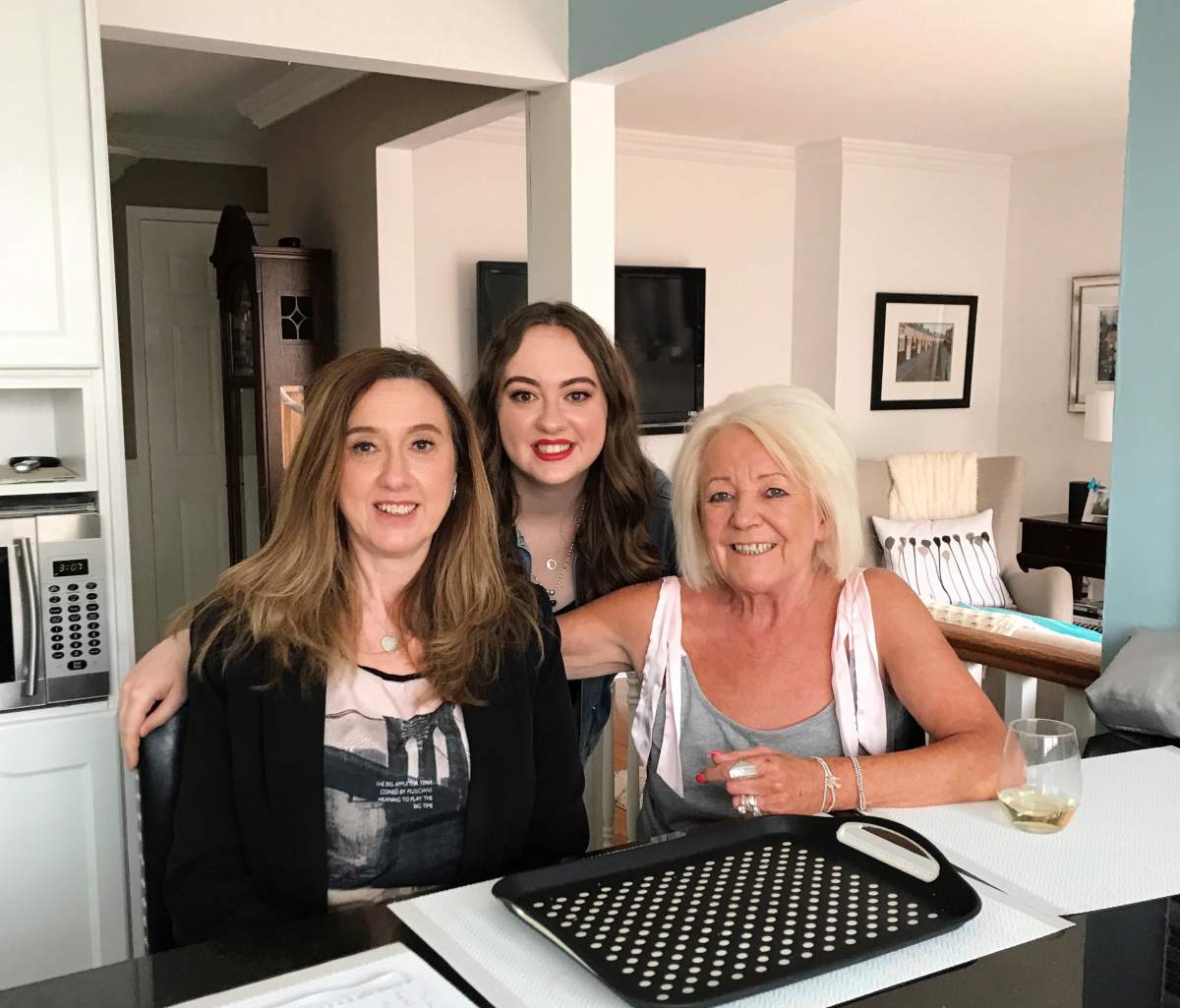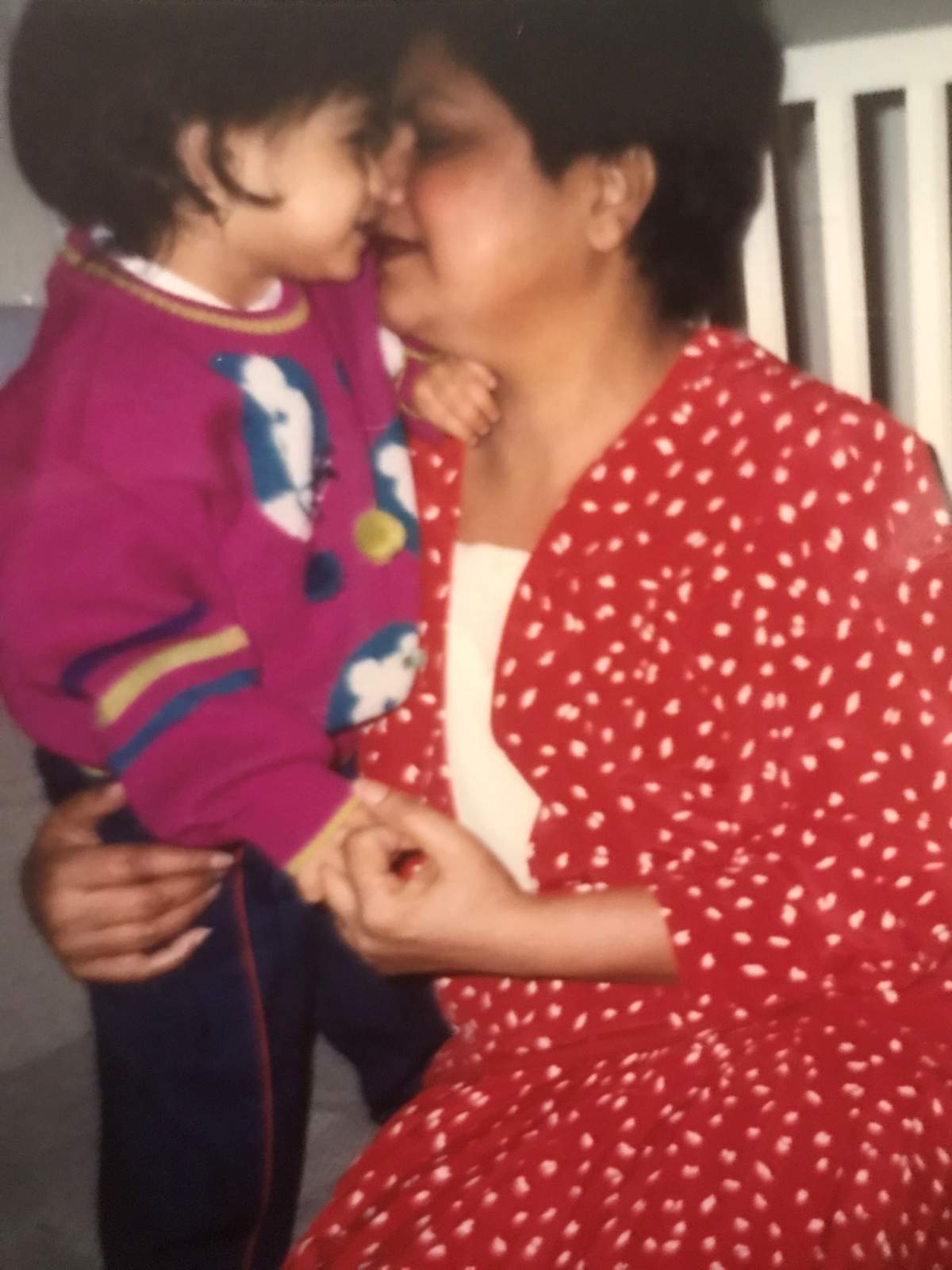When Vishma Sookdeo’s mother was 25 in Trinidad, she almost had a near-death experience.

Kamla Sookdeo was battling an ongoing chronic kidney disease, and as result was taking medications every day to avoid relapse.
Today, Kamla, 67, has been diagnosed with lupus, an autoimmune disease that attacks the body’s immune system. People with the condition can experience fatigue, joint pain, chest pain and sometimes butterfly-shaped rashes on their face.
READ MORE: Cystic fibrosis is still the No. 1 fatal genetic disease for Canadian kids – here’s why
When Vishma turned 27, she got seriously ill.
“My story kind of began around the same age as my mom’s did,” she explained. Her condition sent her to five hospitals in Toronto between the months of August 2016 and December 2016. In that short period of time, Vishma had no idea what was happening to her body — and rightfully so, she was terrified.
“I almost died from this mysterious illness [at that time, doctors were unsure of her condition] that damaged my kidneys to about 30 per cent and gave me a stroke and vision loss,” she said. “I lost my ability to walk and had to relearn using a walker for a while.”
A mother herself, she was later diagnosed with ANCA Vasculitis, an autoimmune disease that causes the swelling of blood vessels.
Kamla Sookdeo (left) and Vishma Sookdeo (right). Photo provided by Sookdeo family.
“I was scared,” she said. “During that time my mom really gave me the strength to know that survival and healing your body and mind was a choice. I remember thinking that as close to death as my mom was, she still survives… knowing her journey gave me hope.”
It’s common for parents and their children to have the same illnesses or diseases. According to The National Center for Biotechnology Information in the U.S., common diseases that run in the family can include everything from coronary artery disease to Type 1 diabetes to types of cancer.
Heart-wrenching for parent and child
This process can be stressful for both the child and the parent. Child psychologist Dr. Jillian Roberts, the founder of parenting resource website Family Sparks, based in B.C., said it can be “heart-wrenching.”
READ MORE: Baby born without skin, undergoing treatment that could save his life

Get weekly health news
She said it’s important to remember you were family before the illness.
“You need to remain a family first, and cope with the illness second,” she said. “The illness should not commandeer your family: stick to your normal rules and routines to help contribute to a sense of normalcy for all your family members, including yourself.”
She added children need to remember that their only job is to be a child, and to do this they need to be encouraged to play, laugh, create, and explore as they normally would.
WATCH: The high cost of rare diseases
Sometimes, children can be resentful towards their parent for “passing down” an illness. “If your child is resentful, it is important that you both empathize with them, and validate their feelings,” she continued. “Think about incorporating phrases such as, ‘I know this is really, really hard. You are very strong for going through this.'”
For some parent and child relationships, Roberts added there can be a special bond. “This gives you a special sense of empathy, and better than anyone else, you know what you child is going through. Use this opportunity to strengthen the bond between yourselves, and re-frame the situation to focus on the positive when you can.”
And through those days that feel extra tough, parents should take a break. “It is not necessary to prove that you can do this on your own. In fact, it can be harmful to both you and your child as your stress can seep into other areas of your life, and manifest in unproductive, harmful ways.”
‘I was kind of in shock’
But the 23-year-old’s mother, Marie Dempsey, 52, was diagnosed with the same illness last year — an extremely uncommon diagnosis.
“Despite the familiarity with the disease and how it presents itself, due to caring for me for so many years, my mum didn’t assume she had Type 1 Diabetes, and just attributed these symptoms to aging,” she said. “It wasn’t until one morning that she noticed her legs really hurt that she was concerned.”
Marie used one of her daughter’s old glucometers to test her blood sugar. Turns out, it was high.
Marie Dempsey (left) and Kendra Dempsey (middle). Photo provided by Dempsey family.
“Ultimately, the doctors in the emergency room sent my mom home and said the local diabetes clinic would follow up with her in a couple days to sort things out. I was furious when I heard this.”
READ MORE: McGill research offers hope for curing rare genetic disease affecting Quebec children
Marie would have needed insulin to treat herself, and after more back-and-forth with the hospital, she was officially diagnosed with Type 1 Diabetes.
“I was kind of in shock — in all honesty I still am, months later,” Kendra said. “Normally, when a parent-child pair both have Type 1 Diabetes, the parent was diagnosed prior to ever having children, and there’s a genetic aspect to the disease.”
Marie Dempsey (left) and Kendra Dempsey (right). Photo provided by Dempsey family.
These days, the two’s medical journeys seem to overlap. “It’s strange that I’m in a role now where I’m the one who gives her diabetes advice, when for so many years she was the one teaching me,” she said.
“We’ll chat about how high or low blood glucose symptoms present themselves for us if our blood glucose level, discuss what foods seem to impact our blood glucose levels the most no matter how much insulin we receive and just vent to each other about the general frustrations of living with this disease.”
‘She truly is my hero’
For both Vishma and Kendra, Mother’s Day feels extra special every year. “Mother’s Day to us both as moms and as daughters is a day that we hold so dear as we get to honour our closeness,” Visham said.
“I know that without my mother’s strength, positivity and love I wouldn’t be here, let alone alive. We get to take a day to truly appreciate the genuine and deep connection that makes our lives worth living.”
Vishma Sookdeo as a child with her mother. Photo provided by Sookdeo family.
This year, like other years, Kendra will write a note to her mother ans shower her with a small gift.
READ MORE: 17-year-old Toronto girl living life to the fullest with Cystic Fibrosis
“Any day I get to spend with my mum is a great day in my books — she truly is my hero,” she said. “She is so smart, so caring, hardworking and considerate. She does so much for myself and my dad, and also does so much for the rest of her family.
“There are no words for me to express just how incredible of a person, friend, and mother she is, and I like to use Mother’s Day as an opportunity to try and remind her just how much I love her, and how thankful I am that she is my mum.”












Comments